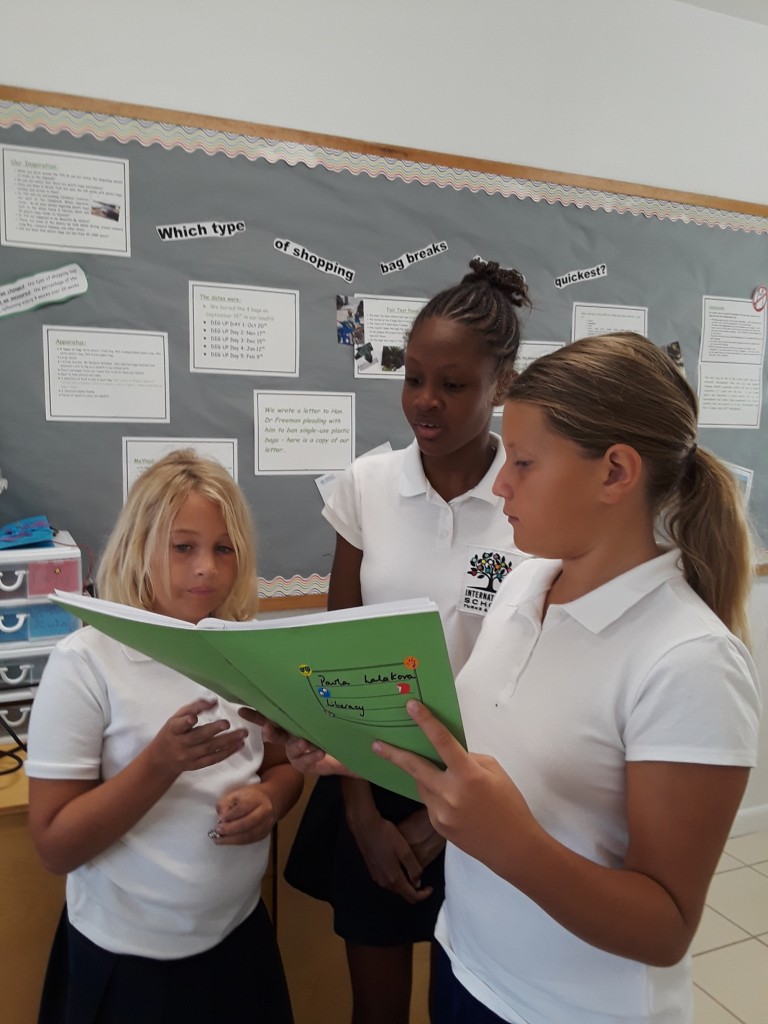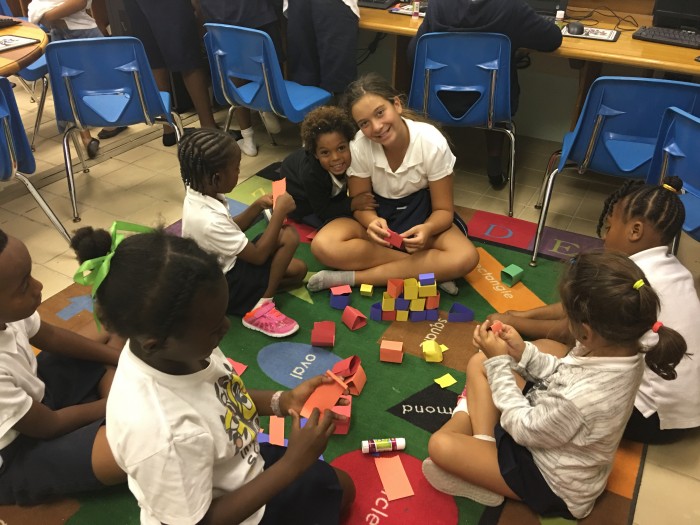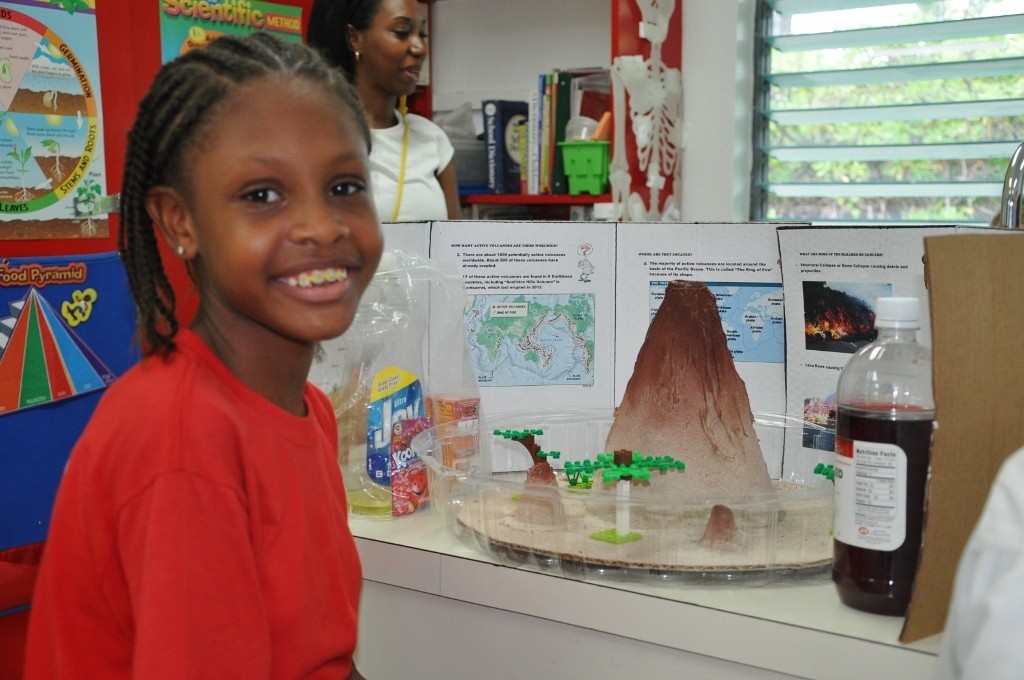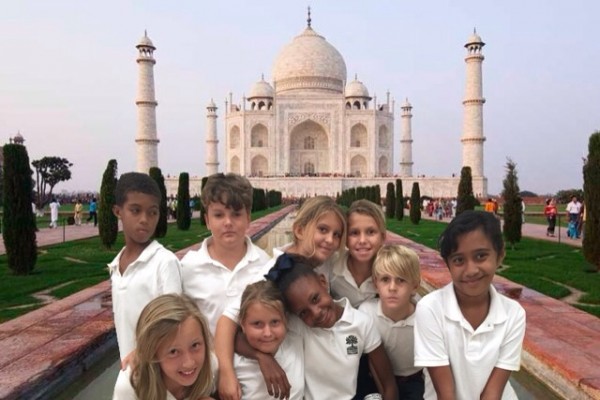The following information provides parents and prospective families with an overview of the curriculum content for Key Stage 2 - Grade 5.
The curriculum is divided into core and foundation subjects as follows:
- Core Subjects: Mathematics, English and Science
- Foundation Subjects: Geography, History, ICT, Art and Design, Design Technology, Physical Education, Music, Spanish, French, Drama and Citizenship
From time to time this content will see a process of appraisal and update. In line with a ‘Creative Curriculum’, a topic based approach to learning is developed, where cross curricular themes are integrated to enable relevance.
Children are given the tools to be an integral part of the learning process and the confidence to perform successfully beyond The International School of the Turks and Caicos Islands.
English - Key Stage 2 Curriculum
Whether your child is a bookworm or doesn’t enjoy English at all, knowing what they’re learning in school means you can give them extra support at home. Here’s your guide to what they’re being taught as part of the Grade 5 English curriculum.
Literacy is a daily lesson, made up of three aspects:
- Reading
- Writing
- Speaking and listening
During Grade 5, children will be studying one or more of the following topics:
- Stories by significant authors
- Fables, myths and legends
- Stories from other cultures
- Older literature
- Stories and film
- Drama
- Poetry and poetic styles
- Persuasive writing
- Recounts
Reading in Grade 5 – your child will:
- continue to read an increasingly wide range of fiction, poetry, plays and nonfiction texts
- read fiction texts both modern and old, and from other cultures and traditions
- prepare poems and plays to read aloud and to perform, showing understanding through intonation and volume
- infer characters' feelings from their actions and justifying inferences with evidence
- discuss how authors use figurative language
- distinguish between fact and opinion
Children should be allowed to choose a book at school to take home with them to read. You may be given an exercise book in order to write your comments in when you read with them. As part of guided reading, children will read with their teacher in groups once a week.
Maths - Key Stage 2 Curriculum
From probability to polygons, find out what your child will learn about in maths in Grade 5. By Grade 5, children should be confident with one- and two-step problems and using addition, subtraction, multiplication and division, and they will be able to decide on the best way of solving a problem.
There is still a focus on times tables, as not all children are completely sure of these. Calculators are now being used with fractions and decimal work, and the children will use ICT to present their work. Set squares and protractors are being used for work with angles and shapes, and percentages are introduced now. Children will be practising their mental maths, as well as using written and practical methods to help them calculate.
It’s also important for the children to see how their maths work links to life outside school, and to other areas of the curriculum.
Topics covered include:
- Number and Place Value
- Calculating
- Measuring
- Fractions, Decimals and Percentages
- Geometry
- Statistics
Science - Key Stage 2 Curriculum
In Grade 5 science, your child will be encouraged to ask questions about scientific concepts and then carry out experiments to find out the answers.
In doing this they will:
- understand what variables are and how to control them
- take measurements from a range of equipment, understanding the need for repeated measures to increase accuracy
- gather and record data using labels, classification keys, tables, scatter graphs, bar and line graphs
- use test results to make further predictions to set up further comparative and fair tests
- make conclusions on the test carried out, orally and in writing
Grade 5 science topics:
- Living things and their habitats
- Animals and humans
- Properties and changes of materials
- Earth and space
- Forces
The Grade 5 Foundation Subjects are: Geography, History, ICT, Art and Design, Design Technology, Physical Education, Music, Spanish, French, Drama and Citizenship.
Great consideration is given to our regional needs within teacher planning and all children are encouraged to understand how our locality relates to the rest of the world, thinking and enquiring as future world citizens.
Children are encouraged to develop self-motivation and encouraged to capture ‘Excellence and Enjoyment’.
It is our team goal to provide inspiration and a meaningful approach to learning. We are particularly driven to focus on local and global issues and the International communities that we serve, adapting the curriculum to meet these needs in a holistic way.





